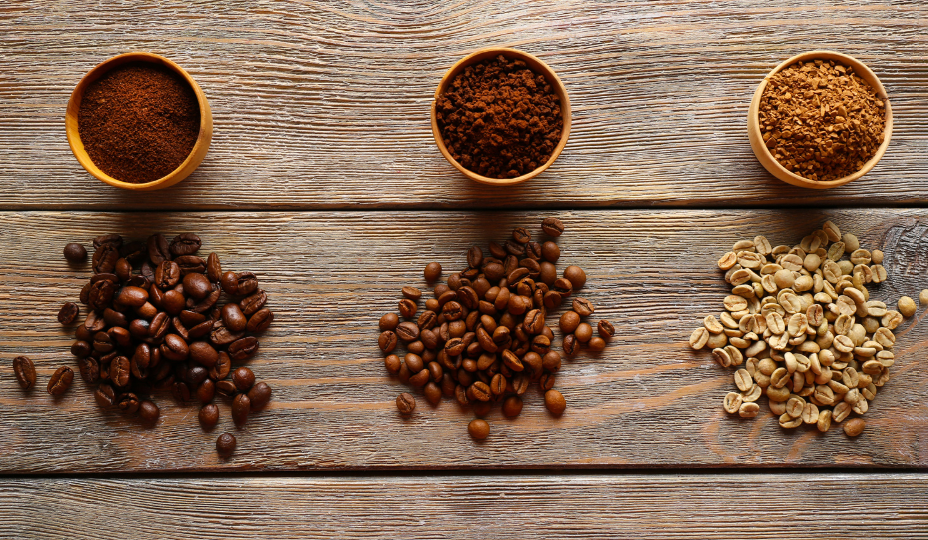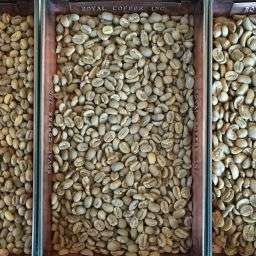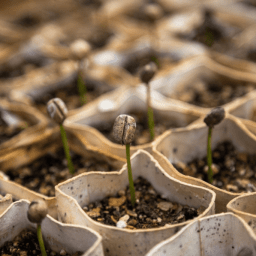
Coffee beans, traditionally known for their pivotal role in the brewing of our cherished morning beverage, possess a versatility that extends far beyond the confines of a coffee cup. This article delves into the lesser-known realm of consuming coffee beans in their solid form, exploring both the historical backdrop and the multifaceted benefits and considerations of this practice.
Origins of Coffee Bean Consumption
The genesis of coffee bean consumption traces back to an Ethiopian legend centered around Kaldi, a goatherd who discovered the energizing effects of coffee beans after observing his goats’ lively behavior post-ingestion. This serendipitous discovery is not just a tale but marks the inception of coffee consumption that would eventually span across continents.
Historical Methods of Consumption
Historically, coffee beans were not just a source of energy but also served as a crucial sustenance on long journeys. Ancient practices involved mixing coffee beans with animal fat to create nutrient-dense balls. This method provided essential energy boosts, particularly to Ethiopian hunters, illustrating the coffee bean’s integral role in ancient survival strategies.
Nutritional Benefits
Coffee beans are a powerhouse of antioxidants, providing an array of health benefits. The presence of fiber and vitamins in coffee beans, notably vitamin B2 (riboflavin), magnesium, and several plant chemicals like cafestol and kahweol, contribute to their nutritional profile. These compounds offer protection against oxidative stress and inflammation.
Health Benefits
The consumption of coffee beans has been linked to a reduced risk of several diseases, including liver disease, Parkinson’s disease, heart attack, stroke, and type 2 diabetes. These benefits are attributed to the beans’ antioxidant properties and the impact of caffeine on the body’s neurological and cardiovascular systems.
Mental and Physical Performance Enhancements
Eating coffee beans can lead to improved alertness, cognitive function, and physical endurance. The caffeine content acts as a stimulant, enhancing mental focus and energy levels, which can be particularly beneficial for athletes and individuals seeking to boost their productivity and performance.
Caffeine-related Risks
While the consumption of coffee beans can offer numerous health benefits, it is not without its risks, primarily due to caffeine. Overconsumption can lead to insomnia, a common side effect attributed to caffeine’s stimulatory effect on the nervous system.
Additionally, individuals may experience heartburn and an increase in stomach acidity, which can cause discomfort. Caffeine can also interact with certain medications, potentially leading to adverse effects.
Digestive Issues
The natural compounds found in coffee beans, including caffeine and acidic substances, can exacerbate digestive issues such as acid reflux. This can lead to discomfort and an unpleasant burning sensation in the stomach or esophagus, making it important for individuals with sensitive stomachs to exercise caution.
Long-term Health Concerns
There are potential long-term health concerns associated with the regular consumption of coffee beans.
These include possible links to osteoporosis, due to caffeine’s effect on calcium absorption, and elevated cholesterol levels, particularly when consuming unfiltered coffee beans that contain coffee oils like cafestol and kahweol.
Preparation Methods
Coffee beans can be enjoyed in various forms, with chocolate-covered beans being a popular choice. This method not only mitigates the bitterness of the beans but also adds a layer of flavor.
Soaking beans in liquids such as water, milk, or juice can soften them and make them more palatable. Coffee beans can also be incorporated into recipes, offering a unique flavor and texture.
Recommended Consumption
Moderation is key when consuming coffee beans due to the concentrated levels of caffeine. Individuals should consider their caffeine sensitivity and overall intake from all sources to avoid negative side effects. It’s also advisable to start with small quantities to assess tolerance.
FAQs
Q: How much caffeine is in coffee beans?
A: The caffeine content can vary, but on average, a single coffee bean contains about 6 mg of caffeine.
Q: Can eating coffee beans improve health?
A: Yes, coffee beans are rich in antioxidants and nutrients that can offer health benefits, though moderation is crucial.
Q: Are there any special preparation methods for eating coffee beans?
A: Coffee beans can be eaten whole, covered in chocolate, or soaked to soften. They can also be ground and added to recipes for an extra flavor kick.
Recipes and Creative Ways to Enjoy Coffee Beans
Innovative Recipes
- Chocolate-Covered Coffee Beans: A classic favorite that combines the richness of chocolate with the robust flavor of coffee beans. Ideal as a sweet snack or a unique gift.
- Coffee Bean Smoothies: Incorporate whole or ground coffee beans into your smoothie for an energizing boost. Pair with bananas, cocoa, and nut butter for a balanced flavor.
- Espresso Bark: Melt dark chocolate and mix in whole coffee beans, then spread on a baking sheet to harden. Break into pieces for a crunchy, caffeinated treat.
Serving Suggestions
Pair these coffee bean delights with desserts for an enhanced dining experience. Sprinkle ground coffee beans over ice cream, or incorporate them into cake batters for a subtle coffee flavor. Chocolate-covered coffee beans can also serve as a decadent topping for cupcakes or a crunchy addition to cookies.
Summary and Best Practices
In conclusion, coffee beans are not only for brewing but can also be enjoyed in various edible forms. From the energizing effects and health benefits to the risks associated with caffeine consumption, understanding how to incorporate coffee beans into your diet offers a new dimension to appreciating this beloved bean.
Advice for Incorporating Coffee Beans into Your Diet
Moderation is key when incorporating coffee beans into your diet due to their high caffeine content. Start with small amounts and consider your overall caffeine intake from all sources. For individuals with specific health conditions or caffeine sensitivities, consulting with a healthcare provider is advisable to ensure that consuming coffee beans is suitable for your health profile.
Exploring the culinary potential of coffee beans opens up a world of creative and delicious possibilities, enriching both your palate and your health when consumed thoughtfully.









